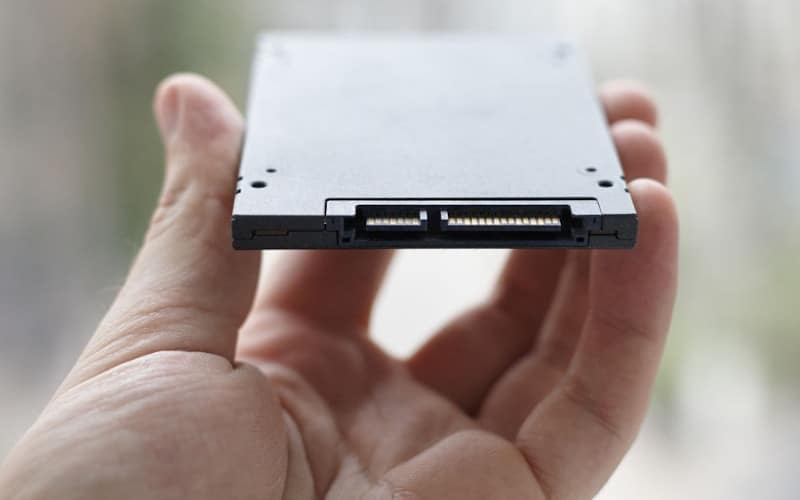We all want a computer that is fast and reliable, but which should you choose? There are many factors to consider when buying a new hard drive.
This article will discuss the difference between SSDs and HDDs, their strengths and weaknesses, as well as some other considerations for choosing the right storage device for your needs.
What is SSD?
A solid-state drive, or SSD, is a newer type of hard drive that uses no moving parts. This makes it faster and more reliable than traditional spinning hard drives. It also consumes less power, making it ideal for portable devices like laptops.
An SSD performs the same basic function as a hard drive, but data is instead stored on interconnected flash memory chips. An SSD is the best choice for a system because it has no moving parts, which means that if you drop your laptop bag or shake while operating they will not be damaged.
What is HDD?
A traditional hard drive, or HDD, contains spinning disks that store your data. Traditional HDDs are much cheaper than SSDs and offer significantly more storage capacity for the price tag.
However, because HDDs rely on moving parts, they are slower and less reliable than SSDs. Also, SSD capacities continue to grow larger as time goes by, whereas the maximum capacity for HDDs isn’t increasing as fast.
A traditional spinning platter HDD stores information on small magnetic disks that can be easily accessed when needed with little delay.
Things to Consider When Choosing Computer Storage
- Capacity: How much storage do you need?
- Speed: How important is speed to you?
- Price: How much are you willing to spend?
- Longevity: How often do you plan on replacing your hard drive?
The Difference Between HDD And SSD
When you’re looking at laptops it’s important not just how much storage they have but also what type it is. This can make a big difference in terms of speed, reliability, and cost.
A traditional hard drive stores data on spinning disks called platters, which is why it’s called an HDD (hard disk drive). This means that if you want to access a file, the platters need to spin up before they can read from or write data onto them – this takes time.
An SSD doesn’t have any moving parts so there are no delays when accessing files; however, these devices tend to be more expensive than traditional hard drives because they’re newer technology.
SSDs also tend to have less storage space for their price point compared with HDDs which means you’ll get fewer gigabytes per dollar spent when purchasing an SSD over an HDD – this can add up quickly depending on what your needs are.
A good rule of thumb is if you’re looking to store a lot of data (like movies, music, and pictures) you’ll want an HDD; if you need your laptop to be as fast as possible then go for an SSD.
Which is better?
Hard drives are less expensive than SSDs and come in larger storage sizes. However, they offer slower read and write speeds than SSDs. If you’re mainly going to use your laptop for basic tasks such as browsing the internet, checking email, and writing documents, then a traditional hard drive will likely be enough.
However, if you need to do more intensive tasks such as editing videos or playing games, then an SSD may be a better option for you.
Ultimately, the best storage device for you depends on your needs. If speed and reliability are important, then an SSD is a better choice.
If you need lots of storage space but don’t want to pay the extra cost, then an HDD is a better option. There are also other factors to consider, such as price and form factor, so be sure to research the options and make the best decision for your needs.
Conclusion
So, what’s the verdict? SSD or HDD? The answer isn’t always clear-cut, but hopefully, this article has helped you understand the difference between these two types of hard drives.
SSDs are faster and more reliable, while HDDs are cheaper and can store more data. Ultimately, the best storage device for you depends on your needs, so be sure to research the options and make the best decision for your needs.
Thanks for reading!






